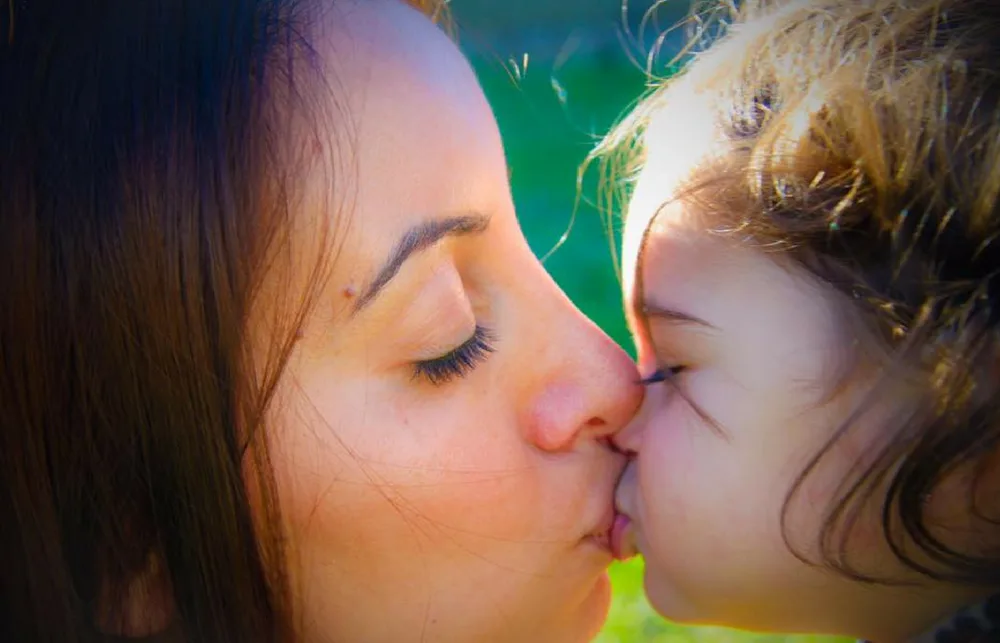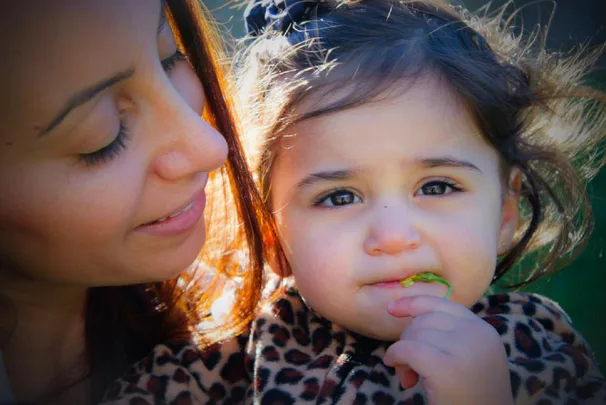For most mums, having your newborn sleep on your chest as you savour the intoxicating scent of new life is both tranquil and love-fuelled. But for me, the sound of my daughter’s faint breath and the feeling of her skin on mine was both nauseating and panic-fuelled.
Postnatal depression can manifest in many ways. And my journey to understanding this devastating illness (that affects as many as 1 in 8 women) was a long and painful one.
For me, the suffering began before my daughter entered the world. And it developed in ways that didn’t resemble the image I had about post-natal depression. Etched in my mind was the picture of a tired mum crying while unable to soothe a screaming newborn.
In the final trimester of my pregnancy, insomnia and incessant worrying set in. I lost my appetite and weight, experienced prolonged bouts of diarrhoea and my heart was constantly racing. Despite this, I refused to slow down at work or socially. In hindsight, it was a futile attempt to outrun the dark wave that was coming.
At 36 weeks pregnant, I was sobbing to midwives and doctors about my inability to sleep and that I felt consumed by anxiety. I was offered counselling and sleeping pills to get me through to delivery and reassured that it’s likely to be pre-labor anxiety.
When I first held Amelie, I realised this was more than just labor fears.

I quickly passed her on to her father who was enamoured with love. That night at hospital, while my husband and daughter slept soundly, I was wide awake thinking of ways I could escape what felt like a prison without the nurses seeing me. It was a potent mix of fear, guilt and worry, yet I made it through the night and left the hospital the next day with the doctor’s consent.
In the weeks that followed, my anxiety snowballed and I became depressed. I lost sight of the spirited, fun-loving, and intelligent woman I was. And I had no ability to love and nurture my baby in the way she deserved.
At that point, the shrewdest decision I made, was admitting to myself that I needed help. I called mental health hotlines, visited GPs, therapists, psychiatrists and told friends and family. I felt enormous relief in expressing my fears and sharing this pain.
The voyage to rediscovering my vivacious self was aided by so many things. My husband’s love and amazing support, help from friends and family, regular therapy, antidepressants, exercise and meditation.
And this rediscovery became even more remarkable when I could – for the first time – really see this perfect little human that I had given birth to. Her love, laughter and light has made my life brighter and my spirit stronger. I can’t help but wonder if my struggle with PND has made our bond even more special.
It’s hard to fathom that some new mums don’t love their children instantaneously, but this doesn’t mean your role as a mother is diminished or that your ability to love is forever gone.
As my two-year-old daughter Amelie proudly (and rightly) points out “I’m mummy’s best friend”.
Tips if you suspect a loved one has perinatal depression or anxiety:
- Listen:Don’t compare your own experience or offer unprofessional advice like “snap out of it” or “just be strong”.
- Stay in touch:She may not feel like taking a call or having a visit, but a simple text will show her you are thinking of her.
- Drop off food:Drop off a meal or her favourite dessert.
- Don’t do it alone:Your help and support is fantastic but it’s important to engage professional mental health workers.
- Take her out:Sunshine and a change of scenery can be great for lifting moods.
PANDA (Perinatal Anxiety and Depression Australia) Helpline 1300 726 306
Life Line 13 11 14
Beyond Blue https://www.beyondblue.org.au/
Antoinette Lattouf is an award-winning television and radio journalist and mother of two.
Twitter @antoinette_news










